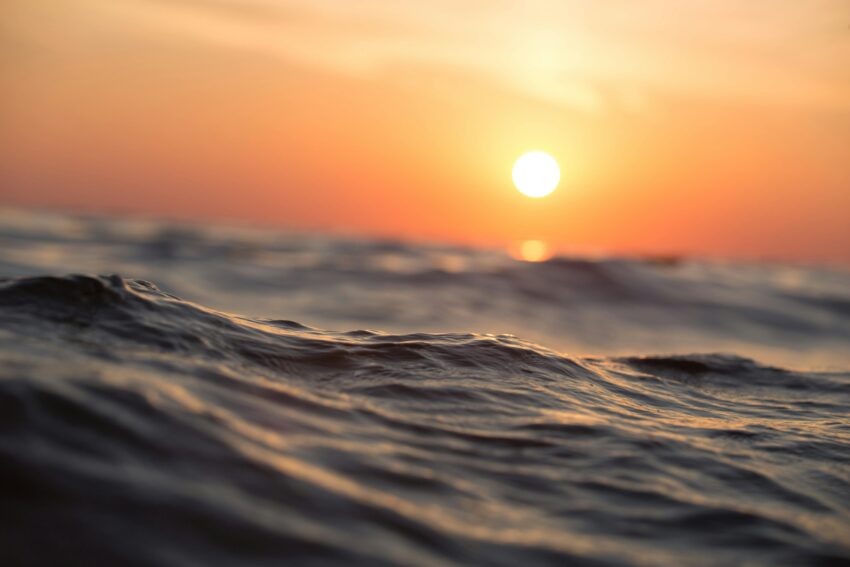Do you know what it feels like to drown?
It’s not sudden. First, the water pulls you in, wrapping itself around you like an embrace. You fight, your body instinctively struggling against the currents. But the waves keep coming, relentless and uncaring. Eventually, your strength fades. Water fills your lungs, and you stop fighting.
That’s where I am. Drowning—not in water, but in the depth of my own emotions.
I resonate with the ocean’s depths, perhaps because they mirror how far my feelings reach. Inside me, there’s a complex ecosystem, a storm constantly brewing. I’ve tried to bury it, layering sand, debris, even concrete over the raging waters to create the illusion of stability. But the storm is stronger than I imagined. It tears through every barrier I’ve built, dragging me under.
I hoped for rescue. I scanned the horizon for lifeboats, for hands stretched out to save me. A nearby cruise ship gave me hope: people who promised to have my back. But all I heard were shouts from the shore, impersonal speeches about “building resilience” and “not being so sensitive.” The kind of advice that’s easy to dish out when you’re standing on dry land.
Sensitive. Ugh. I hate that word when it’s spoken with pity, as if it’s a flaw to feel deeply. If you ask me, sensitivity is my superpower. It’s raw and untamed, but it’s what makes me human. Still, I’ve learned to hide it. I’ve trained myself to choke back tears, to keep my storms locked behind bolted doors. At 2 a.m., when the world is asleep, the dam finally breaks, and the tears come rushing out. But even then, I cover my tracks, erasing every sign of what others would call “weakness.”
Listen, it’s not like I haven’t tried to climb the walls of my own heart and let people in. When I did, I was met with clichés: Stay strong. Just push through. As if the only way forward was sheer willpower. Maybe the complexity lies in these depths, but how could I explain what I needed when I didn’t fully understand it myself? I didn’t know the words that would console me or the actions that might lift me up. I only wanted to feel seen—to believe there was still love and hope somewhere in the storm.
The choices that trap me aren’t monstrous, three-headed trolls threatening to devour me whole. They’re quieter, subtler, and somehow just as suffocating. Shouldn’t adults know how to handle these things? Isn’t that why I turned to them? I gave them a chance—no, I gave myself a chance to be helped. But the outcome only left my heart more bruised, my questions sharper.
Those questions twist my stomach into knots and pierce my chest like a blade, twisting, leaving me feeling wretched. Do I lack something? Is it because I have fewer friends or no so-called “exciting life” for others to admire? Is that why they pity me?
I don’t understand why finding comfort in my own company—why being at ease in silence—is so often seen as pathetic. As if solitude is a flaw, as if I’ve failed to live life to the fullest because I don’t fill every moment with noise or people. Why does the world equate contentment in quiet with emptiness? Being at ease in my own company isn’t about loneliness—it’s about freedom. In silence, I find space to reflect, to feel, to exist without the weight of expectations. For me, it’s not emptiness; it’s a fullness found in the quiet.
Yet, I refuse to let this storm consume me entirely. When no lifeboat appears, I build my own raft. I gather stones and seaweed from the ocean bed, piecing together something that might help me float. The goal isn’t to reach the shore—not yet. Just floating will do for now.
I wonder, though, if anyone truly understands. Most days, I feel like an exhibit in a museum—an artefact for people to examine, theorise about, and judge. They stare with sympathetic eyes and condescending smiles, offering advice I didn’t ask for. They don’t see the weight I carry, the boulders that land on my lap and crush my spirit.
But they don’t see the storm either. They don’t see the strength it takes to ride these waves, to tame tempests that could tear me apart. They don’t see me rebuilding after every fall, every failure.
I’ve made peace with the hard days. I’ve learned to sit with my sadness instead of forcing it away. When the rain comes, I let it. When the frown lingers, I wear it unapologetically. Because that’s what it means to be human.
With every tear, I find strength. With every wave I ride, I prove to myself that I’m still here, still standing.
And you’re telling me that resilience is unknown to me?
